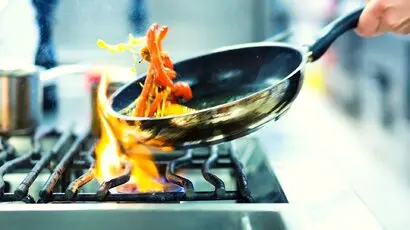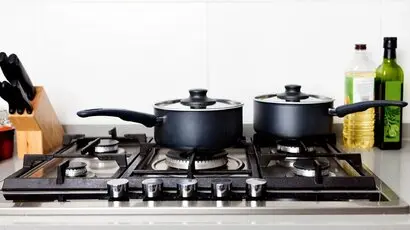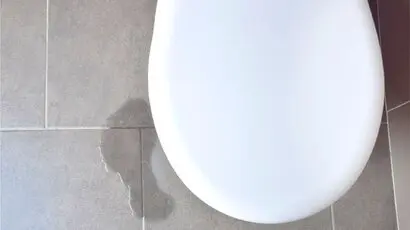6 Symptoms Of A Gas Leak
Not sure whether there’s a gas leak or you’re overthinking? The most important thing you should know is how to detect gas leaks quickly and what to do if one occurs.
Suppose, one day, while cooking lunch, you start to feel lightheaded and lie down to rest.
That’s pretty natural. Most folks might chalk it up to being overworked. Your first thought would be to grab a glass of water and take a nap to recharge both mentally and physically.
But what if there’s nothing wrong with you but something wrong with the gas lines? That’s right! What you had passed off as stress could easily be dizziness due to carbon monoxide poisoning. And, as you must know, gas is highly flammable, which means an increased risk of fires or explosions.
There’s only one way to be sure - read our guide as we discuss the six common symptoms of a gas leak.
If there’s a gas leak, it’s crucial to know the warning signs to keep everyone safe. You or your family might spot some changes. Here are six possible symptoms of a gas leak to watch out for:

Can you hear a whistling sound coming from your gas lines? The best way to be alert against a gas leak is to rely on your senses, particularly smell and hearing. You should know that gas operators add ethyl mercaptan to natural gas, and thankfully so because natural gas is odourless. We wouldn’t be able to smell a leak without the added smell.
Most Australians have compared the smell of leaking gas to rotting cabbage or rotten eggs.
For your natural gas safety, you may also hear a whistling or hissing sound from your gas pipes. In either of these circumstances, leave the area immediately and contact a professional gas plumber.

Do you have a beautiful garden in front of the house or live in an area with many trees? You might wonder what this has to do with natural gas leaks, so let us explain.
The gas company supplies natural gas through underground pipes that reach your home and connect to different appliances. When an underground pipeline leaks, it wipes out the vegetation in the vicinity.
Plants are sensitive to even minor changes, and if you notice dying plants, it might be due to a gas leak. A buried gas line in the area could rupture due to corrosion or deterioration with age.
If you think you have an underground gas leak, contact a licensed gas plumber as soon as possible or call your local gas supplier.
If your gas bills suddenly shoot up, it’s a strong hint something isn’t quite right with your gas lines.
But why didn’t you hear, smell, or notice any fault with the gas lines? This is because some leaks are tiny, and the slow leakage goes undetected. It finally shows up in the gas bill, so call a gas servicing company once you have confirmed the leak.
Sometimes, cold climates, house guests, and extra appliances add to the cost, but you won’t receive an extravagantly high bill, barring a leak.
Keeping an eye on the pilot light is an easy and effective way to spot gas leaks or supply line issues. If the lights keep going out or the flame doesn’t shine as brightly as it used to, it’s wise to call a gas plumber without delay.

A blue flame indicates your gas stove is working correctly. Check the flame colour since red or yellow flames cause concern and indicate a leakage. Sometimes, a change in flame colour is synonymous with carbon monoxide leakage, and it’s better to be safe than sorry.
Call a plumber, your local fire department, or your gas company if you notice a red or yellow flame. If you’re lucky, cleaning the burners or servicing various gas-burning appliances will resolve the issue.
The best way to ensure a gas leak is when you fall sick for no apparent reason. Some of the physical symptoms of carbon monoxide poisoning include:
Carbon monoxide leaks usually occur due to incomplete combustion, so the safest thing is to step away from gas appliances before calling a professional.
If reading our guide worries you about the timely detection of gas leaks, we have a solution. Go online and buy electronic gas detectors for detecting natural gas, carbon monoxide, and LPG. You will find handheld devices and stationary units, which you can install near appliances or the main supply line.
Gas and carbon monoxide detectors sound an alarm (like a smoke detector) when gas leaks from a pipeline.
There’s no substitute for maintenance, and it’s essential to get all the gas appliances serviced at least twice a year, if not more, based on the manufacturer’s recommendation. This involves cleaning the various appliances, checking the connections, and ensuring the gas pipes are in good condition. We suggest speaking to a gas fitter for professional advice on maintenance.
If you suspect a natural gas leak, the first step is to alert everyone in the house and move to a safe location immediately.
If there’s a significant leak, send someone to alert the neighbours, and have the contact details of a licensed plumber or gas fitter on your emergency speed dial. We know it’s difficult, but stay calm and narrate the problem to the person concerned.
The best plumbing companies respond to emergencies within hours and have a 24/7 helpline number for consumers’ convenience. WP Plumbing offers round-the-clock services for emergency gas leaks in Melbourne. And we have the best tools to quickly and safely detect a gas leak. So, don’t hesitate to reach out to us!
But we hope it won’t come to that because after reading our guide, you will spot gas leaks before they escalate into a big issue.
Not sure how to detect a gas leak from your stove at home? Don’t worry; we’ve got you covered with our comprehensive and straightforward to follow guide on how to identify a gas leak from your kitchen.
Want to know how you can keep your gas stove in good condition? Check out our simplified guide comprising some practical tips for maintaining gas stoves at home.
Just found out that your toilet is leaking from the base? Please don’t waste any more time and check out this guide to know the reason behind the leak and how to fix it.


